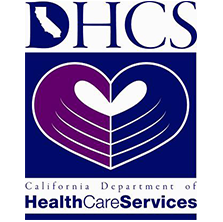Drinking alcohol is a common part of American culture. However, it is not without its consequences, and the negative effects can be tricky to pinpoint at first. It might take a few deep breaths and moments of honesty, but with the right knowledge, it is easy to know when a habit is turning the corner into a damaging addiction.
Typical Symptoms Of Alcohol Withdrawal
Ranging from very mild to quite serious, the symptoms of alcohol withdrawal vary significantly depending on how much and how frequently you drink. Mild symptoms may occur as soon as six hours after your last drink and can include anxiety, shakiness, headaches, sweating, nausea, vomiting, and restlessness. More severe symptoms include delirium tremens, hallucinations, seizures, and elevated blood pressure, and typically worsen in severity two to three days into the withdrawal period. These symptoms can even be fatal, so it is vital to seek immediate medical care if you are experiencing any of them, especially if you were a heavy drinker prior to experiencing withdrawal.
What Causes Alcohol Withdrawal?
As many of us understand, alcohol is a depressant on the nervous system. As such, it may seem counterintuitive that most of the symptoms of alcohol withdrawal are related to an excess, not a shortage, of neural activity. To understand withdrawal periods, we must understand the body’s habituation of alcohol over long periods of use.
Habituation describes the way our brains adapt to our environment by decreasing the response to a repeated stimulus. After repeated and frequent exposure to alcohol, which constantly dampens brain activity, neural activity increases overall to maintain normal functioning. Our brains are quite clever, and they learn to predict the environmental dampening effect of alcohol by kicking the whole system into a higher gear. On one hand, this strategy allows alcoholics to retain more of their ability to function than such amounts of alcohol would normally take away from an individual. On the other hand, the sudden removal of alcohol from the equation poses immense health risks. Without the constant signal dampening from drinking, the brain becomes toxically hyperactive as its compensation measures have not had time to be unlearned.
Levels of Drinking
The degree of imminent danger, and the kinds of symptoms you can expect to experience, depending on what your level of drinking was like before you stopped. Moderate drinking is considered up to one drink per day for females, or two drinks for males. For many people, this amount of drinking is mostly safe. As the weekly average number of drinks increasingly exceeds these daily allowances, the potential symptoms of withdrawal may worsen. If you don’t drink more than a few drinks a day, withdrawal symptoms may manifest as mild anxiety and irritability. For someone who drinks, even more, symptoms can become increasingly dangerous and even fatal.
Reversing the Effects of Alcohol
As with any challenge we face, it is crucial to remember that the human body is amazingly resilient and capable of healing. The most important aspects of recovering from alcoholism are patience and humility. Alcohol withdrawals are not something to power through, and your ability to deal with severe symptoms are not a reflection of toughness or character. For those with a mild to moderate use history of alcohol, you may be able to taper down until cutting yourself off. However, heavy drinkers should seek support in their endeavor to quit using alcohol to increase the chance of a healthy and successful recovery.
Regardless of your amount of past use or the symptoms you may be experiencing, knowing that healing is possible can help create the positive outlook necessary to overcome your drinking habit. Numerous studies have found that new brain cell growth occurs in the brain’s hippocampus in only weeks of abstinence from drinking. It is never too late to change, and though chronic alcoholism may have caused irreversible damage, there is always some degree that can be healed with the proper approach.
The First Steps
If you suspect you are experiencing alcohol withdrawal, or you plan on quitting alcohol, the first step should be to talk to your doctor who can diagnose your symptoms. If symptoms are severe, seek immediate medical care. If you have only been a light drinker, it is likely that you can safely withdraw from your own home. You may experience some irritability and anxiety, and your doctor may even prescribe some sedatives to help during this transitional period.
If your symptoms are severe enough, you will likely require hospitalization. In a hospital or detox facility, trained medical professionals can monitor your vitals and ensure you get enough fluids and any necessary medication as you experience severe withdrawal symptoms.
The symptoms of alcohol withdrawal can be hazardous and even fatal. The degree of severity in symptoms ranges from mild to severe depending on the person and the level of drinking before stopping. Symptoms include anxiety and restlessness on the mild side to life-threatening seizures, high blood pressure, and hallucinations at their most severe. If you plan on quitting drinking, it is important to let your physician know or receive support from an addiction treatment and detox center. At Safe Harbor, your lasting health and safety are our number one concern. Your first step towards recovery starts here with our state-licensed detox service. We understand how difficult addiction is, and nobody deserves to suffer alone. Our facility, located in Orange County, will provide you with the immediate medical and psychological care needed to facilitate this process of detoxing from alcohol. Call us today at (833) 580-1473 to learn more.
START YOUR JOURNEY WITH
SAFE HARBOR HOUSE
(310) 861-4157
Contact Us Today
Verify Your Insurance




